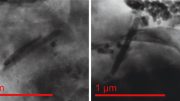
According to a new study, pantoprazole significantly reduces upper gastrointestinal bleeding in ventilated ICU patients. This conclusion comes from the extensive REVISE Trial and is supported by a meta-analysis of multiple studies, suggesting widespread impacts on clinical practices.
The REVISE Trial, involving 4,800 ICU patients, demonstrates that pantoprazole reduces gastrointestinal bleeding risks without affecting mortality rates, influencing future critical care guidelines.
A commonly available drug helps prevent upper gastrointestinal bleeding in critically ill adults on a breathing machine, according to the results of a global study and meta-analysis led by researchers at McMaster University.
The research, published on June 14, 2024 in The New England Journal of Medicine and NEJM Evidence, investigated the effect of the gastric acid suppressant pantoprazole, which is primarily used to treat heartburn caused by gastroesophageal reflux disease (GERD).
Pantoprazole, sold under brand names like Protonix, is a proton pump inhibitor (PPI) used primarily to treat conditions caused by excess stomach acid, such as gastroesophageal reflux disease (GERD) and stomach ulcers. It works by blocking the enzyme that produces stomach acid, thereby reducing acid levels and helping heal acid-related damage in the digestive tract.
Patients in the intensive care unit (ICU) who need a breathing machine (mechanical ventilator) also receive pantoprazole to prevent upper gastrointestinal bleeding, caused by stress-induced ulcers in the stomach. Concerns emerged about whether this complication of critical illness had disappeared over the years, and about side effects of pantoprazole, including increased risk of death in the sickest patients. The research provides critical care teams with certainty about whether the medications should be used in practice.
“This is the largest randomized trial on this topic in the world, led by Canada. Physicians, nurses, and pharmacists working in the ICU setting will use this information in practice right away, and the trial results and the updated meta-analysis will be incorporated into international practice guidelines,” said lead author and principal investigator Deborah Cook, a professor in the Department of Medicine at McMaster.

Lead author and principal investigator Deborah Cook, a professor in the Department of Medicine at McMaster University. Credit: McMaster University
Global Randomized Control Trial
The Reevaluating the Inhibition of Stress Erosions (REVISE) Trial was a randomized control trial that compared the effect of pantoprazole to placebo in critically ill adults on a breathing machine. The trial was run in 68 centers in eight countries and over 4,800 patients underwent randomization. Among patients undergoing invasive ventilation, pantoprazole resulted in a significantly lower risk of clinically important upper gastrointestinal bleeding than placebo but not in a lower risk of death.
Clinically important upper gastrointestinal bleeding occurred in 25 of 2,417 patients (one percent) receiving pantoprazole and in 84 of 2404 patients (nearly four percent) receiving placebo. At 90 days, death was reported in 696 of 2390 patients (29 percent) in the pantoprazole group and in 734 of 2379 patients (30 percent) in the placebo group.
Updated Systematic Review
Researchers conducted a meta-analysis of 12 randomized trials of proton-pump inhibitors for GI bleeding prevention in 10,000 critically ill patients to summarize the current evidence on the outcomes of gastrointestinal bleeding, mortality, pneumonia, and C. difficile infection.
The medications were associated with a reduced incidence of clinically important upper gastrointestinal bleeding and may have little or no effect on mortality. The evidence also showed the medications may have no effect on pneumonia and little or no effect on C. difficile infection.
Reference: “Stress Ulcer Prophylaxis during Invasive Mechanical Ventilation” by Deborah Cook, Adam Deane, François Lauzier, Nicole Zytaruk, Gordon Guyatt, Lois Saunders, Miranda Hardie, Diane Heels-Ansdell, Waleed Alhazzani, John Marshall, John Muscedere, John Myburgh, Shane English, Yaseen M. Arabi, Marlies Ostermann, Serena Knowles, Naomi Hammond, Kathleen M. Byrne, Marianne Chapman, Balasubramanian Venkatesh, Paul Young, Dorrilyn Rajbhandari, Alexis Poole, Abdulrahman Al-Fares, Gilmar Reis, Daniel Johnson, Mobeen Iqbal, Richard Hall, Maureen Meade, Lori Hand, Erick Duan, France Clarke, Joanna C. Dionne, Jennifer L.Y. Tsang, Bram Rochwerg, Timothy Karachi, Francois Lamontagne, Frédérick D’Aragon, Charles St. Arnaud, Brenda Reeve, Anna Geagea, Daniel Niven, Gloria Vazquez-Grande, Ryan Zarychanski, Daniel Ovakim, Gordon Wood, Karen E.A. Burns, Alberto Goffi, M. Elizabeth Wilcox, William Henderson, David Forrest, Rob Fowler, Neill K.J. Adhikari, Ian Ball, Tina Mele, Alexandra Binnie, Sebastien Trop, Sangeeta Mehta, Ingrid Morgan, Osama Loubani, Meredith Vanstone, Kirsten Fiest, Emmanuel Charbonney, Yiorgos A. Cavayas, Patrick Archambault, Oleksa G. Rewa, Vincent Lau, Arnold S. Kristof, Kosar Khwaja, David Williamson, Salmaan Kanji, Eric Sy, Brittany Dennis, Steve Reynolds, Francois Marquis, François Lellouche, Adam Rahman, Paul Hosek, Jeffrey F. Barletta, Robert Cirrone, Mark Tutschka, Feng Xie, Laurent Billot, Lehana Thabane and Simon Finfer, 13 June 2024, New England Journal of Medicine.
DOI: 10.1056/NEJMoa2404245
The research was funded by the Canadian Institutes for Health Research, the Accelerating Clinical Trials Fund, Physicians Services Incorporated of Ontario, Hamilton Association of Health Sciences Organization, and the National Health Medical Research Council of Australia.









A quote from the article, “The medications were associated with a reduced incidence of clinically important upper gastrointestinal bleeding and may have little or no effect on mortality.” This articles title is in contradiction to the findings of the study.